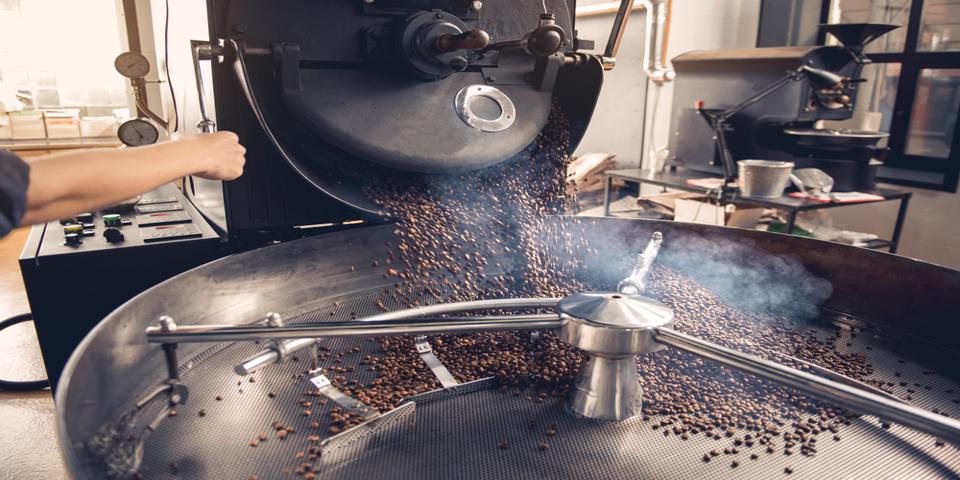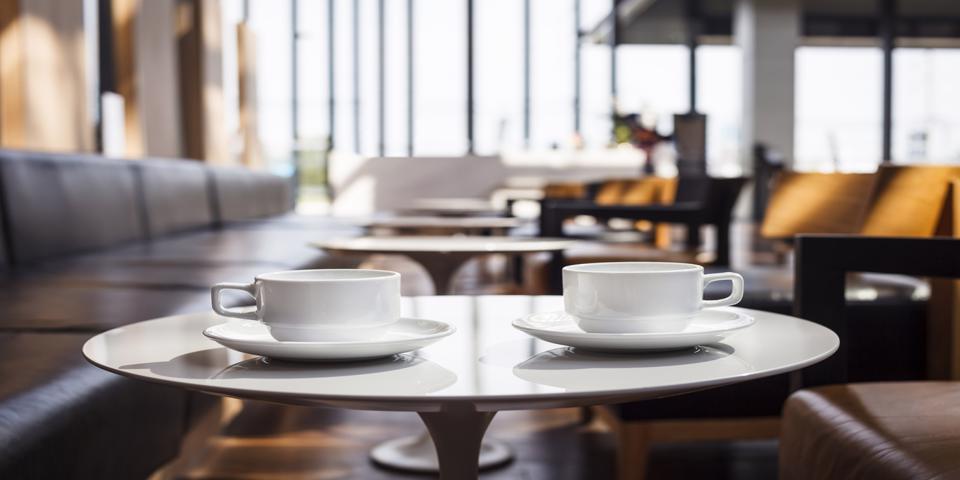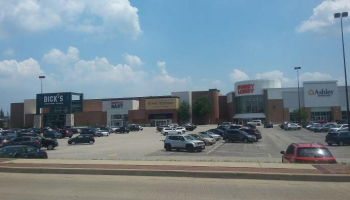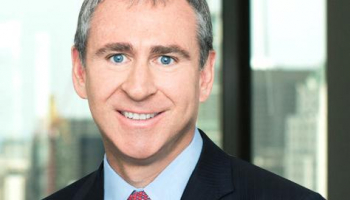
chicagoThe novel coronavirus has wounded the coffee roasters who are behind Chicago’s famed coffee culture. This was supposed to be a good year for Metric Coffee, the independent roastery which began in a garage six years ago. Co-founder Xavier Alexander thought 2019 had been the best year yet, and fully expected 2020 to be even better. Alexander is well-known in the Chicago coffee roasting community, having managed the ever-popular Intelligentsia Coffee.
Darko Arandjelovic, the proprietor of Caffe Streets, the always-busy and ultra-hip Wicker Park coffee shop, also expected 2020 to be a bang-up year. But what really happened was a global pandemic, followed by an extended stay-at-home lockdown order, that closed dining in coffee shops, cafes, and bars across Chicago.
Fine Coffee Falls Victim to COVID-19
When the stay-at-home and shutdown orders hit, Alexander says he panicked. Metric’s wholesale coffee orders were canceled overnight. “We’re just a small, local, employee-owned company,” Alexander said about Metric. “We didn’t have a plan B. We don’t have a bank to default to, or any investors to ask for help. We had to change direction right away and figure out what we could focus on that is tangible and that we can control.” Metric continues to serve up takeout coffee and doughnuts from a stall next to its West Town roasting facility.
Chicago hosts dozens of the finest coffee roasters in the country, including Ipsento, Dark Matter, Sparrow, and Kusanya. The city is also home to a few big roasters including Intelligentsia and Stewarts Coffee. Just like any business in the hospitality industry, coffee roasters had to suspend or alter their operations indefinitely. As a result, the city’s indie coffee roasters had to work quickly to amend their priorities to keep their businesses alive.
A few, including Metric, have been waiting and watching for the post-pandemic trends; for now, roasters are cautiously optimistic about the near future, however, they’re equally reluctant to project perceived trends too far.
The trends include knowing how the city will handle outdoor dining in the future. Metric has a sidewalk patio on a peaceful patch of Fulton Street, which seems perfect for social distancing. However, coffee shop customers are also known to hang out, which public health officials could look down on post-pandemic.
“I’m approaching this day-by-day,” said Dan Miracle, COO of Metropolis Coffee Company, a roastery based in Avondale. Metropolis also operates a cafe in Edgewater cafe that is temporarily closed. “We want to be as prepared as we can, but we’re also not making any firm plans until we have more information, and right now, there is too much that’s unknown.”
Coffee Roasters Fight to Survive the Pandemic
 The wholesale coffee orders to restaurants were the first to go, and as conferences, parties, and festivals were canceled, coffee roasters saw much of their business canceled overnight. Dan Miracle of Metropolis estimates that wholesale made up 75% of Metropolis’s business. The same goes for many other Chicago specialty roasters. “Most of our business is wholesaling,” observed Josh Millman, proprietor of Passion House Coffee Roasters. “We do around 30% retail and 70% wholesale. So as a result of the stay-at-home order, we lost around 90% of our wholesale customers. Hotels, restaurants, cafes, bakeries, you name it.”
The wholesale coffee orders to restaurants were the first to go, and as conferences, parties, and festivals were canceled, coffee roasters saw much of their business canceled overnight. Dan Miracle of Metropolis estimates that wholesale made up 75% of Metropolis’s business. The same goes for many other Chicago specialty roasters. “Most of our business is wholesaling,” observed Josh Millman, proprietor of Passion House Coffee Roasters. “We do around 30% retail and 70% wholesale. So as a result of the stay-at-home order, we lost around 90% of our wholesale customers. Hotels, restaurants, cafes, bakeries, you name it.”
Passion House Coffee Roasters, founded in 2011, runs coffee shops on Goose Island and in Logan Square. The Passion House closed their retail locations when the stay-at-home order was issued. Fortunately, they recently reopened their cafe in Logan Square for takeout, and the Goose Island location should reopen June 1.
Paycheck Protection Program May or May Not Help
Passion House received a federal Paycheck Protection Program loan, and while Millman is grateful for that, he’s already worried. There has been a lack of transparency on how to use the loan, and Millman is worried about what to do with his employees after the eight-weeks of payroll ends.
Lawmakers are working to amend the PPP to work better for employers as the full scope of the shutdowns becomes apparent. “I just think there’s no clarity, that’s the biggest issue,” Millman observed. “Everyone is taking care of the immediate, but there’s no planning, no benchmarks, no clarity. There’s bad leadership, from the very top-down. If you ask anyone in the banking industry, if you ask your banker, ‘How do you use the PPP money?’ they say, ‘I’m not sure.’ ‘How about SBA loans?’ ‘I don’t know.’”
Jesse Iñiguez of Back of the Yards Coffee Co. also is critical of the Paycheck Protection Program. Iñiguez also received a loan to keep his workers employed. However, in an op-ed for South Side Weekly, Iñiguez expressed his frustration concerning the late April loan distributions, when millions of dollars went to big national chains like Ruth’s Chris Steak House and Shake Shack. Following public backlash, both companies returned the loans. The loan Iñiguez received allowed Back of the Yards to reopen the South Side cafe for takeout and delivery. However, Iñiguez fears for local mom-and-pop owners who don’t have the know-how or resources to access these loans. “The fact is that large corporations have the legal staff to apply for these funds,” he said. “We were able to apply for a loan because I stopped everything else I was doing. However, it was a very daunting process. I believe there are a lot of small businesses that are simply not going to survive this.”
The Neighborhoods Suffer the Loss of Local Coffee Shops
 Jesse Iñiguez is not only concerned for small business owners, but he’s also concerned about the neighborhood residents of the Back of the Yards on the Southwest Side. The goal of this coffee roaster isn’t just selling lattes and beans, the goal was also to establish a hub where residents could get specialty coffee in their neighborhood. Closing that cafe affected more than just sales, he said. The goal was to create a friendly place for young neighborhood residents, which is something Iñiguez thinks adults take for granted. “In Back of the Yards, safe places to gather, particularly for young people, are quite rare,” he said. “I’m not a teenager, I can go to other places across the city, like the gym or even a bar, to socialize with people. Unfortunately, teenagers in our community don’t really have that. The frustration is that it’s no safe place anymore, at least not for the foreseeable future.”
Jesse Iñiguez is not only concerned for small business owners, but he’s also concerned about the neighborhood residents of the Back of the Yards on the Southwest Side. The goal of this coffee roaster isn’t just selling lattes and beans, the goal was also to establish a hub where residents could get specialty coffee in their neighborhood. Closing that cafe affected more than just sales, he said. The goal was to create a friendly place for young neighborhood residents, which is something Iñiguez thinks adults take for granted. “In Back of the Yards, safe places to gather, particularly for young people, are quite rare,” he said. “I’m not a teenager, I can go to other places across the city, like the gym or even a bar, to socialize with people. Unfortunately, teenagers in our community don’t really have that. The frustration is that it’s no safe place anymore, at least not for the foreseeable future.”
Chicago Coffee Roasters Hang-On to Hope
Local Chicago roasters are hanging onto hope that the demand for fine, gourmet coffee will remain alive. It’s just a matter of meeting coffee connoisseurs where they are, and for now, that’s stuck at home.
“We’re beginning to see our online orders dramatically increase in a way we’ve never had before,” Millman commented. Before the stay-at-home order and shutdown, only a few of the local neighbors would come in to buy coffee. “But when this happened, the whole neighborhood began buying coffee from us. It’s not enough to sustain the business, but it keeps some money coming in.”
Millman also sees the uninvited changes due to the pandemic as an opportunity to reexamine Passion House’s business strategy. Applying new strategies for logistics and communication in just a few weeks stressed his team, but Millman thinks the company will come out stronger for it.
Metric Coffee has also seen an increase in online orders, and customers are buying a lot more at once. “Throughout this ordeal, we didn’t have all of the information or know where this would go. But I’m glad I trusted my gut and my gut said to remain open and to do it safely,” Alexander said. “Thankfully, it’s paying off.” Metric also donated 100% of the proceeds from its coffee variety, Beautiful Day in the Neighborhood, to support the employees at its client restaurants. In just one month, Metro raised $5,000 for workers at restaurants like Big Star and Lula.
As businesses in Illinois begin to reopen, including coffee shops, Chicago’s coffee roasters are cautiously optimistic.
“No one knows what the future holds, but I think we are feeling pretty positive about things,” said Metropolis’s Dan Miracle. “We’ll keep plugging away and I expect to come of this with a successful business. It may not look exactly like it did before, but it will still be great.”









